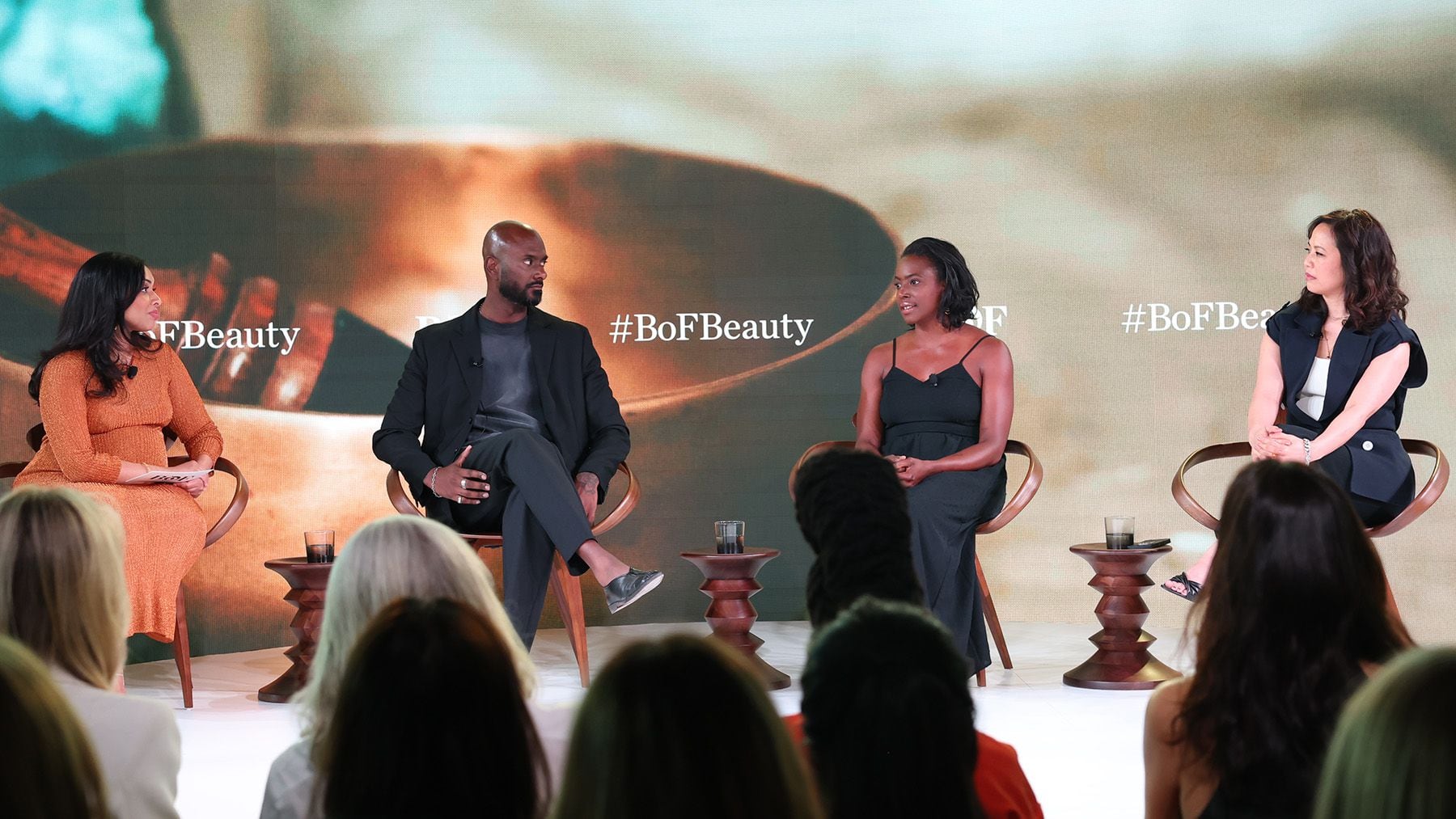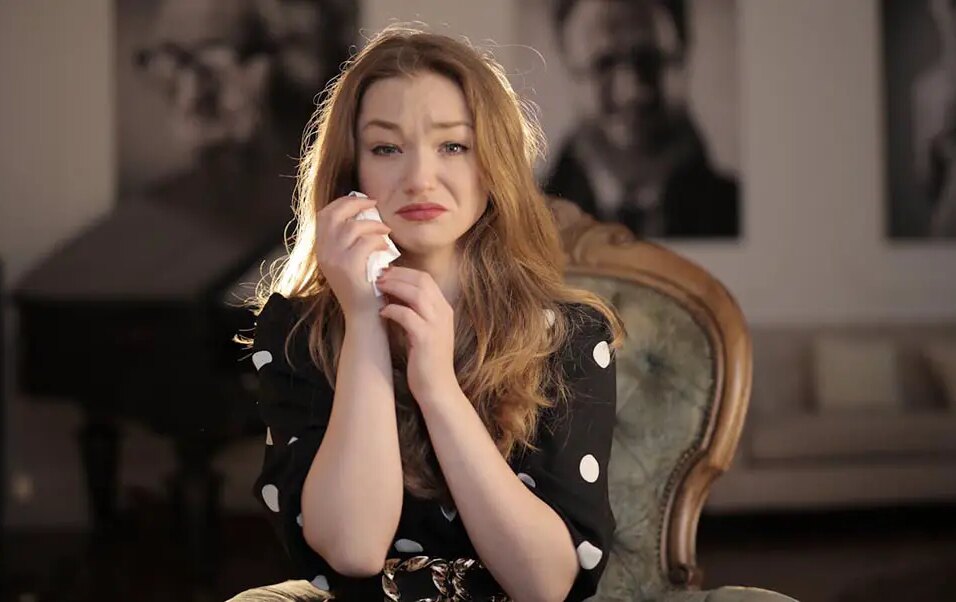The Business of Beauty Global Forum: Beauty From the Inside Out

The beauty industry has long focused on external appearances to shape how consumers feel about themselves.
“We are beginning to understand that what we put inside the body, how we manage stress, and how we care for ourselves also impacts how we look and feel,” said BoF founder and CEO Imran Amed.
In recent years, the growing wellness industry grounded in modern medicine and new technologies has gained steam. The final session of The Business of Beauty Global Forum in Napa Valley, California, explored the market opportunities in the modern wellness industry and what personal practice can look like for consumers.
Alternative medicine specialist Deepak Chopra, traditional Chinese medicine practitioner Sandra Lanshin Chiu and co-founder of venture studio Squared Circles Alexander Gilkes were among this session’s speakers exploring the evolution and future of the wellness sector.
The race to slowness
The Covid-19 pandemic forced a number of people to reconsider their health practices and work-life balance, thus creating market opportunity for brands looking to service these consumers.
“Looking healthy became the new beauty,” said Alexander Gilkes, co-founder of venture studio Squared Circles. “We’ve emerged from a culture of instant gratification … to a culture of optimisers and future-proofers.”
According to Gilkes, today’s consumers are more concerned with deferred gratification with Gen-Zers being the cohort most likely to engage in wellness practices.
Longevity, or the prolongation of life, is a fast-rising trend among today’s wellness consumers who are more medically literate.
Wellness conscious shoppers “want pleasure, performance, and purpose and routines”
Can wellness be democratised?
While the multi-billion dollar modern wellness industry is characterised by innovations in technology and culture, it also carries with it an exclusionist reputation which serves as a barrier to entry for lower-income and non-white shoppers.
“We exist in a culture where there is a hierarchy of bodies,” said Michelle Cassandra Johnson, an author and activist. “The larger culture which has defined who deserves to be well, who is worthy of wellness.”
Johnson added that marginalised groups, including Black people, may not feel comfortable in wellness spaces because the industry is taking a top-down approach by defining what wellness should look like for all people instead of personalising the practice to different groups.
Manoj Dias, a wellness teacher and meditation instructor, said the current wellness landscape is focused on optimisation over wellness.
“To even get to the place where we can explore this concept of wellness, we have to move through so many systems that are really inspiring to not make us well,” he added.
Sandra Lanshin Chiu, a Traditional Chinese Medicine practitioner, said the accessibility of wellness practices like Traditional Chinese Medicine have been co-opted by the Western wellness industry without taking the origin cultures and ethics into the practice.
“You lose the power of an ingredient if you don’t understand its history,” said Chiu.
The gut of the matter
Increased attention has been paid to the microbiome, a collection of bacteria, fungi and viruses in our gut which can influence broader health and wellness.
“We have more bacterial cells than human cells,” said Dr. Elsa Jungman, a skin barrier researcher and founder of HelloBiome.
Jungman said while the microbiome can present brands with incredible opportunity to disrupt the market, education on the consumer side is lacking. Dr. Nigma Talib, a naturopathic practitioner, echoed this sentiment by saying “all death and disease starts in the gut … you can cure and heal almost every disease at the level of the gut.”
Talib said a lack of regulation and consumer trust will be brands’ biggest challenges when attempting to scale in the gut health route.
“As consumers don’t know what to look for individually,” said Dr. Chrystle Cu, a dentist and founder of oral wellness company Cocofloss. “They will be looking for social proof and reviews.”
Reaching optimal health
Personalisation is the key to tapping a wellness industry focused on optimisation.
Bataller says people are not healthier because a majority of health systems are solutions oriented and are less concerned with preventative care – a facet of health consumers are interested in post-pandemic.
Additionally, few health systems integrate western and eastern medicine and have a focus on wellness.
“In the last century, we’ve been able to double our life expectancy,” said Alejandro Bataller, co-founder and vice president of SHA Wellness clinic. “But the last third of our lives, we are suffering from poor health.”
The long road to longevity
Deepak Chopra popularised wellness practices like meditation and yoga well before beauty and lifestyle brands caught on. On the Business of Beauty Global Forum stage, he spoke about the future of wellness and wellbeing and the opportunity AI and genetic editing presents to the sector.
“95 percent of diseases are determined epigenetically,” said Chopra. “Every experience: eating, breathing, digestion, metabolism, condition, thoughts, feelings, relationships, emotions, imagination … can influence our genes.”
Chopra said a lack of a joyful and peaceful disposition is likely to mean one is ill, this understanding opens up the opportunity for brands looking to work in the space of relaxation and wellness.
“The revolution is healthspan,” said Chopra.





Leave feedback about this